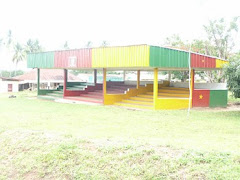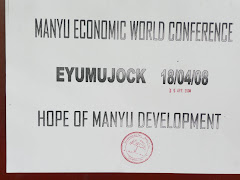
Electronic waste, otherwise known as e-waste will soon
become an environmental nightmare in countries like Cameroon if not properly
controlled and managed. Obsolete electronic waste comprise of such equipment as
old television sets, mobile phones, refrigerators, printers and now computers.
Many years ago, China and India were the dumping pits for obsolete electronics
by the west. However, China and India have both improved their environmental
laws and Africa has become the new found destination with Nigeria and Ghana as
prime targets.
There is no doubt, the proliferation of computer devices and
the digital revolution has brought social, economic and technological advances
in all facets of life. The downside is - some of these developments may sooner
or later become an environmental, and health nightmare in Africa. One area of
concern is the decrease product life of computers, newer and faster innovations
in the market place all leading to rapid obsolescence and waste products. It is
now common to find average income families replacing cell phones like light
bulbs, and dumping old electronics devices for the latest and greatest in the
market. So what happens to the old products when they are replaced by these new
gadgets? The problems are further compounded by lack of regulation, inadequate
e-waste management policies, and the everyday demand for anything cheap such as
used electronics from the west.
In countries like Cameroon, demand for computer items has
been on the rise during the last 5-10 years. There is a growing need to catch
up with most of the world in technology
by upgrading private and government facilities as well as educational institutions
with computerization. It is alright to
bring the society in par with the global village by making sure every office
and classroom desk in the country has a computer, however the problem is the
quality of computers sitting on that desk.
A cursory look at most of the equipment reveals a disturbing trend. This
trend is exacerbated by Cameroonians and foreign bodies who ship obsolete computers
to Cameroon without regard for long term usefulness and the environment. Most
of the equipment discarded in government and corporate offices in the west
stays in storage facilities after use for an average of 3-5 years due lack of
functionality. One reason is to promote capitalism and because newer computer
software cannot be run on these old machines due to obsolete components. The equipment is then donated to nonprofit organizations
and by the time it is installed in an African classroom, it barely has little
use and serves as a toy.
In order to prevent the dumping of this obsolete equipment in
countries like Cameroon, regulators have to enforce the laws in the books or develop
new ones to prevent this growing phenomenon. The problem with computer dumping
in Cameroon is further promoted by Cameroonians involved in the business of
importing old computers. These savvy business men and women often have no
knowledge of the technology they are dealing with and therefore disregard the importance
of useful technology and long term environmental concerns. Although there are international
laws banning the export of computer waste, some shady individuals get around
these by labeling the shipments as “charity donations or usable second hand
goods’.


There is no doubt, the unprecedented importation of old
computers into the Cameroon marketplace and now street corners will lead to
environmental pollution as evidenced in Nigeria and Ghana. Research has shown
that almost 85% of these computers are total “junk”. With the lack of recycling
facilities, obsolete electronics contaminate ground water, rivers, lakes, crops
and thus leave a specter of hazardous e-waste mountains with grave consequences
for the environment and health. A final resting place for some of this waste is
backyards where they are broken apart mostly by children to salvage copper, hard
drives and components that can be sold. Without proper handling, the kids are
exposed to toxic waste. The Civil
society in Cameroon can start reversing this trend before it gets too late by
tightening environmental regulations, implementing e-waste management policies
and enforcing strict regulation and standards
on what type of used computers can be imported to the country.
This article was written by Simon Etta for MEDWC Blog.
This article was written by Simon Etta for MEDWC Blog.





























No comments:
Post a Comment